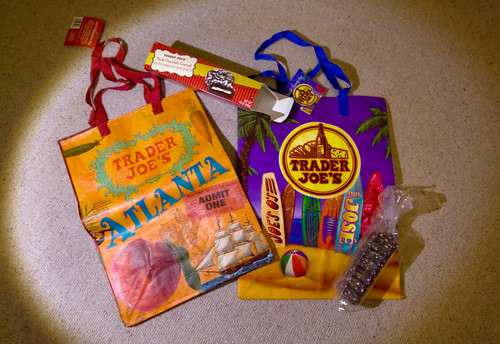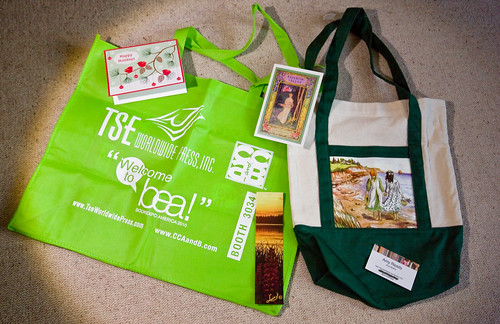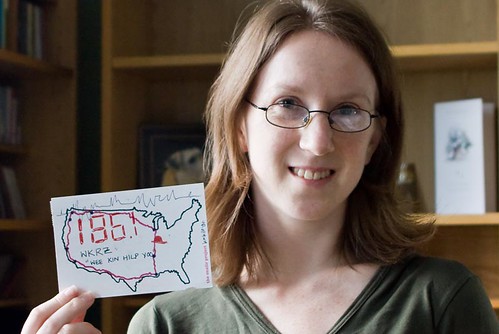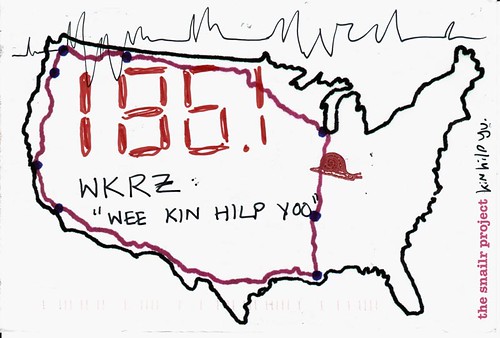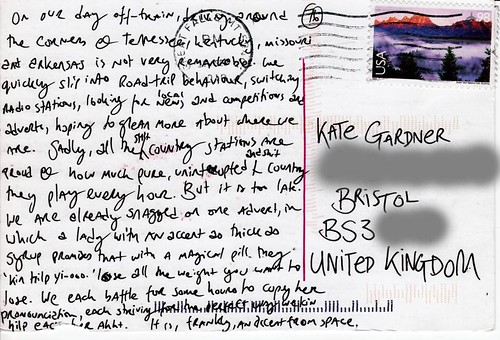The Great Grocery Bag Exchange #2
My second parcel of goodies is here (after a delay while it sat forlornly at the sorting office until Tim kindly cycled over there and fetched it for me). In case anyone missed my last post about this, I took part in the Great Grocery Bag Exchange, organised by Carin of A Little Bookish. Go here to find out more.
This second parcel came from Lydia of The Lost Entwife, another book blog that was new to me and I am now enjoying. Which was what this was all about, after all. Thank you Lydia for my lovely lovely parcel. Here they are:
Yes I have eaten three of those rather chunky cookies already and yes they are very tasty. Yum yum. Thanks again Lydia!
